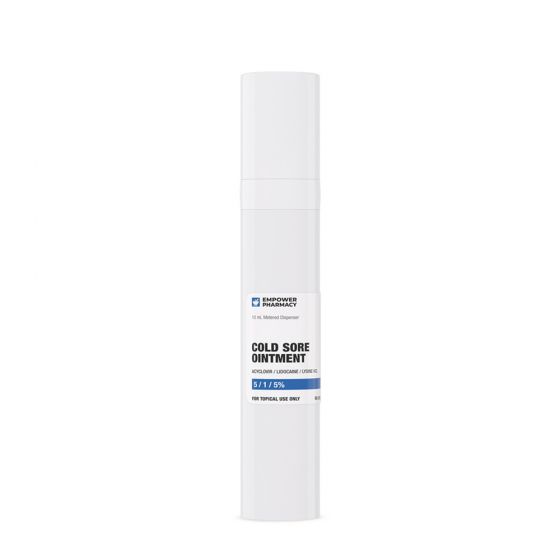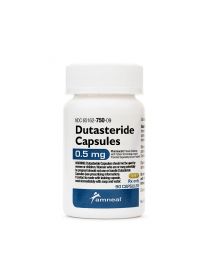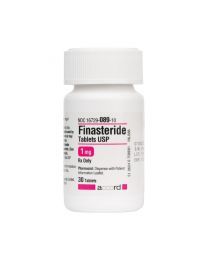- Home
- About
-
- < Products
-
- < By Brand
- Alastin Skincare
- AMP medical
- Biopelle
- CALECIM®
- CareFirst Specialty Pharmacy
- CLn Skin Care
- CO2Lift
- EltaMD
- Empower Pharmacy
- Glowbiotics
- Hillcrest Pharmacy
- HydroPeptide
- ISDIN
- Jan Marini
- Latisse
- MMSkincare
- Neocutis
- Nutrafol
- Obagi
- PCA Skin
- PHOTOZYME
- Qyksonic
- Revision Skincare
- Sente
- skinbetter science
- SkinCeuticals
- SkinMedica
- Upneeq
- VANIQA®
- Virtue Labs
-
- < By Product Type
- Acne Scarring
- Acne Treatments
- Anti-Aging
- Bath and Body
- Brightening
- Cleansers
- Eye Treatments
- Exfoliants
- Hair Care
- Hair Regrowth
- Hand Treatments
- Injectable
- Kits
- Lip Treatments
- Masks
- Moisturizers
- Neck Treatments
- Redness & Rosacea
- Retinoids & Exfoliants
- Scarring & Post-Procedure
- Thin Lashes
- Serums
- Skin Rejuvenation & Antioxidants
- Dietary Supplements
- Toners
- Sun Protection
- Contact Us
- Sign In
- Sign Up
Acyclovir
Acyclovir is a synthetic purine deoxynucleoside analogue with inhibitory activity against herpes simplex virus types 1 (HSV-1), 2 (HSV-2), and varicella-zoster virus (VZV).
Lidocaine
Lidocaine's antiarrhythmic effects result from its ability to inhibit the influx of sodium through the "fast" channels of the myocardial cell membrane, thereby increasing the recovery period after repolarization.
Lysine Hydrochloride
Lysine, an indispensable amino acid (IAA), is involved in receptor affinity, protease-cleavage points, retention of endoplasmic reticulum, nuclear structure and function, and muscle elasticity.
$79.10
Acyclovir
Acyclovir is a synthetic purine deoxynucleoside analogue (specifically acyclic guanosine analogue) with potent activity against herpes simplex viruses type 1 and 2 (HSV-1, HSV-2) and much less activity against varicella-zoster virus (VZV). Clinically, the drug is indicated to treat the following infections: herpes labialis, herpes genitalis, herpes simplex encephalitis, herpes simplex keratitis, neonatal herpes infection, chickenpox (varicella), and shingles (zoster). In order to be active, the drug must be phosphorylated by viral thymidine kinase to acyclovir monophosphate, and then further converted to acyclovir triphosphate. After phosphorylation, the drug binds to viral DNA polymerase, is incorporated into viral DNA, and ultimately inhibits viral DNA synthesis. The greater antiviral activity of acyclovir against HSV as compared to VZV is due to its more efficient phosphorylation by HSV thymidine kinase. Acyclovir is commercially available as a topical cream and ointment, ophthalmic ointment, oral capsule, tablet and suspension, solution for injection, and buccal tablets.
Lidocaine
Lidocaine is a widely used antiarrhythmic and amide-type local anesthetic. As an anesthetic agent, it is available as an ointment, jelly, patch, or aerosol for topical use, as an oral solution, and as an injection. Lidocaine is classified as a class Ib antiarrhythmic. It may be considered for ventricular fibrillation (VF) and pulseless ventricular tachycardia (pVT) that is unresponsive to cardiopulmonary resuscitation (CPR), defibrillation, and vasopressor therapy. Evidence is inadequate regarding the routine use of lidocaine after cardiac arrest or early (within the first hour) after the return of spontaneous circulation (ROSC). However, prophylactic use of lidocaine may be considered in certain circumstances (e.g., during emergency medical services transport) when treatment of recurrent VF/pVT may be challenging. Due to the potential for serious adverse reactions, including cardiovascular depression, continuous electrocardiogram monitoring is recommended during intravenous lidocaine treatment. There is limited evidence suggesting that nebulized lidocaine exhibits steroid-sparing effects when used in corticosteroid-dependent asthmatics. However, extreme caution is recommended until long-term safety and efficacy can be established.
Lysine Hydrochloride
Lysine, or L-lysine, is an essential amino acid, meaning it is necessary for human health, but the body cannot make it. You have to get lysine from food or supplements. Amino acids like lysine are the building blocks of protein. Lysine is important for proper growth, and it plays an essential role in the production of carnitine, a nutrient responsible for converting fatty acids into energy and helping lower cholesterol. Lysine has antiviral effects by blocking the activity of arginine, which promotes HSV replication.
| Brand | Empower Pharmacy |
|---|
Write Your Own Review
cold sore treatment
Acyclovir / Lidocaine / Lysine HCl 5/1/5%












